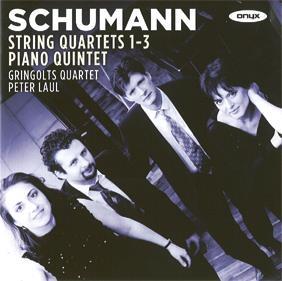
The Strad Issue: January 2012
Description: Recordings of Schumann that are just a little too individualistic for comfort
Musicians: Gringolts Quartet, Peter Laul (piano)
Composer: Schumann
How you take to the performances by the Gringolts Quartet depends very much on how you respond to the playing of Ilya Gringolts himself in the first violinist’s chair. His wiry tone and free-flowing style stand out from the richer-toned playing of his colleagues in tuttis, though he can shrink into the background when others come to the fore with the main idea. It’s the kind of volatile Schumann espoused to such great effect by the Zehetmair Quartet (ECM), though here the playing sometimes gives the effect of presenting a composer closer to mental instability than was the case in 1842, such is its wild, untamed quality. The almost vibrato-free Andante opening to the First Quartet initially suggests an ascetic approach, but the ensuing Allegro takes on a more expressive character with accents adding a hint of danger to the surface charm.
I don’t particularly warm to Gringolts’s throwaway rhythms in the 6/8 opening theme of no.2, and he produces an almost ugly, acidulated tone for the second variation in the same work’s Andante, which makes the intonation sound only just there. It’s a shame that his style so dominates when the playing of the rest of this Zurich-based ensemble blends much better, indeed acting as a foil for some of Gringolts’s more flighty indulgences.
Tempos are generally well judged, though in the finale of no.3 the trio sounds too laboured (no change of tempo is marked), and for all Gringolts’s individualism, there’s a definite team spirit at play. Peter Laul is a somewhat demure partner in the Piano Quintet, an impression not helped by his recessed position in the recorded balance. The sound otherwise captures the finest detail, including some intrusive rumbling (intermittent enough to lighlight the edits) from what may be the St Petersburg metro beneath the venue, St Catherine’s Lutheran Church.
Matthew Rye

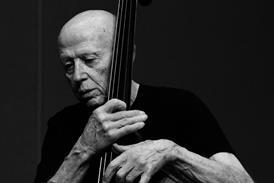
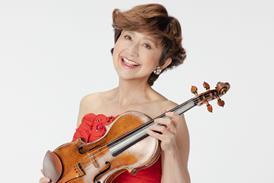
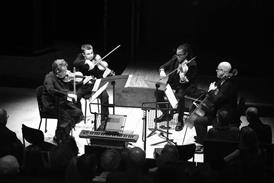
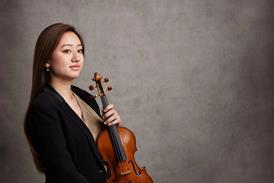



























No comments yet